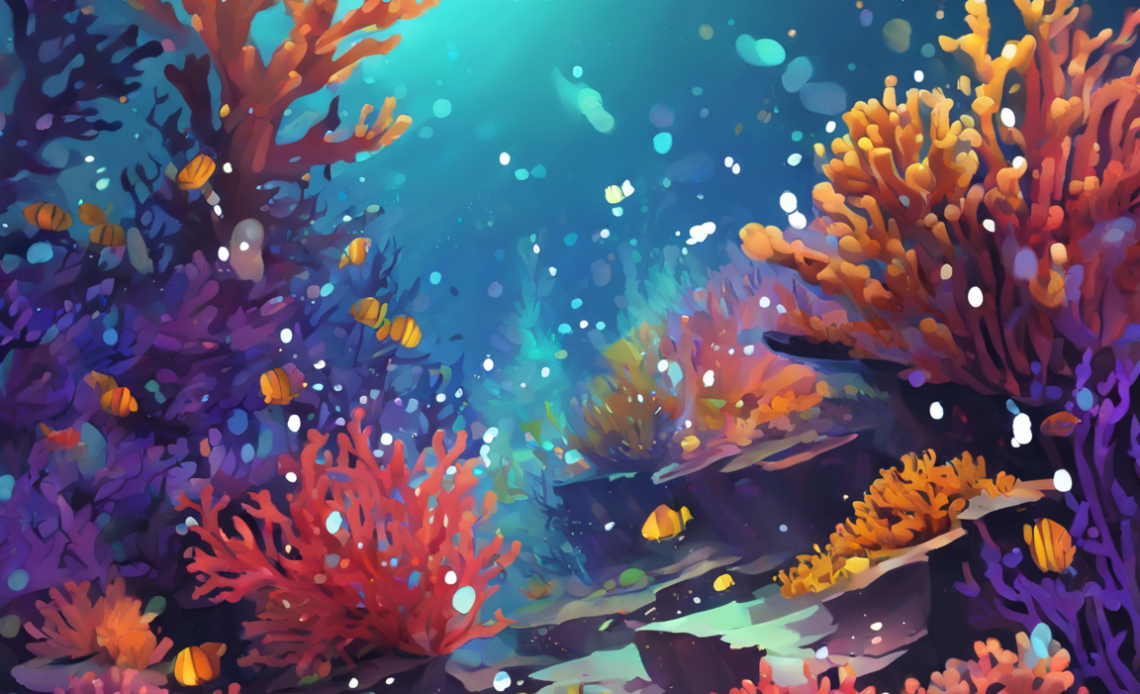
When it comes to exploring the wonders of the underwater world, few ecosystems can rival the beauty and diversity of coral reefs. Coral reefs are often referred to as the “rainforests of the sea” due to their rich biodiversity and vibrant ecosystems. Formed over thousands of years by the accumulation of calcium carbonate exoskeletons of coral polyps, coral reefs support a wide array of marine life and play a crucial role in maintaining the health of our oceans.
The Importance of Coral Reefs
Coral reefs are not just stunningly beautiful; they also provide a multitude of benefits to both marine life and humans. Ecologically, coral reefs serve as habitats for a quarter of all marine species, including fish, invertebrates, and plants. This biodiversity is crucial for the overall health of the ocean ecosystem. Economically, coral reefs support industries such as fishing and tourism, providing livelihoods for millions of people worldwide. In fact, it’s estimated that coral reefs contribute over $9 trillion to the global economy each year.
Threats to Coral Reefs
Despite their importance, coral reefs are facing unprecedented threats. Climate change is perhaps the biggest threat to coral reefs today. Rising sea temperatures lead to coral bleaching, where corals expel the colorful algae living in their tissues, leaving behind a stark white skeleton. Ocean acidification caused by the absorption of carbon dioxide also weakens coral structures, making them more vulnerable to damage. Pollution, overfishing, and destructive fishing practices further exacerbate the decline of coral reefs worldwide.
Exploring Coral Reefs
For those seeking to witness the beauty of coral reefs firsthand, snorkeling and scuba diving are popular ways to explore these underwater wonders. Snorkeling allows for a more casual and surface-level exploration, ideal for beginners and those who want to enjoy the beauty of the reef without the need for specialized equipment. Scuba diving, on the other hand, provides a more immersive experience, allowing divers to venture deeper into the reef and witness marine life up close.
Top Coral Reef Destinations
- Great Barrier Reef, Australia: One of the most iconic coral reef systems in the world, the Great Barrier Reef is a UNESCO World Heritage site and home to an incredible array of marine life.
- Raja Ampat, Indonesia: Known for its exceptional biodiversity, Raja Ampat is a diver’s paradise with crystal-clear waters and stunning coral formations.
- Tubbataha Reef, Philippines: This remote reef in the Sulu Sea boasts pristine coral gardens and is a haven for pelagic species like sharks and manta rays.
- Belize Barrier Reef, Belize: The second-largest coral reef system in the world, the Belize Barrier Reef is a UNESCO site and offers diverse diving experiences.
- Palau, Micronesia: Palau’s rock islands and jellyfish lakes provide unique diving opportunities, with vibrant coral reefs teeming with life.
Conservation Efforts
To protect and preserve coral reefs for future generations, conservation efforts are crucial. Marine protected areas, sustainable fishing practices, and reef restoration projects are just a few ways in which organizations and governments are working to safeguard coral reefs. Public awareness and education also play a key role in promoting responsible tourism and reducing the impact of human activities on reef ecosystems.
Frequently Asked Questions (FAQs)
- What is coral bleaching, and how does it affect coral reefs?
-
Coral bleaching occurs when corals expel the algae living in their tissues, leading to a loss of color and energy source. This weakens corals and makes them more susceptible to disease and death, ultimately harming coral reef ecosystems.
-
How can individuals help protect coral reefs?
-
Individuals can help protect coral reefs by practicing responsible tourism, reducing carbon footprint, avoiding products that harm marine life, and supporting organizations dedicated to coral reef conservation.
-
What are some common threats to coral reefs?
-
Climate change, ocean acidification, pollution, overfishing, and destructive fishing practices are some of the common threats that coral reefs face today.
-
Why are coral reefs important for marine biodiversity?
-
Coral reefs support a quarter of all marine species, providing crucial habitats for fish, invertebrates, and plants. This biodiversity is essential for the health and resilience of the ocean ecosystem.
-
Where are the best places to dive and explore coral reefs?
- The Great Barrier Reef in Australia, Raja Ampat in Indonesia, Tubbataha Reef in the Philippines, the Belize Barrier Reef, and Palau in Micronesia are among the top destinations for diving and exploring coral reefs.
In conclusion, coral reefs are not just spectacular natural wonders; they are also vital ecosystems that support marine life and provide numerous benefits to humans. By understanding the importance of coral reefs, supporting conservation efforts, and engaging in responsible tourism practices, we can all play a part in preserving these sparkling wonders of the sea for generations to come.

